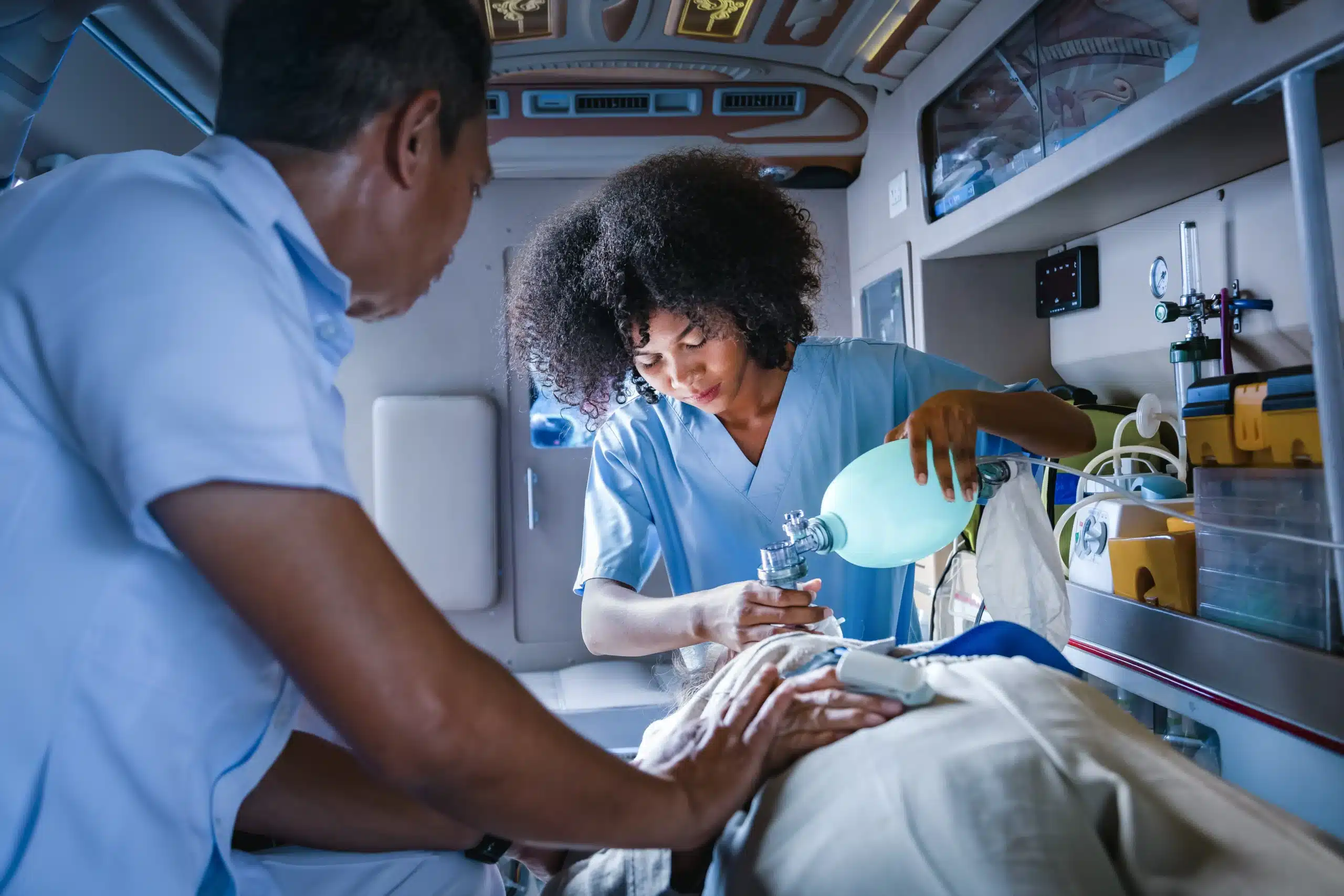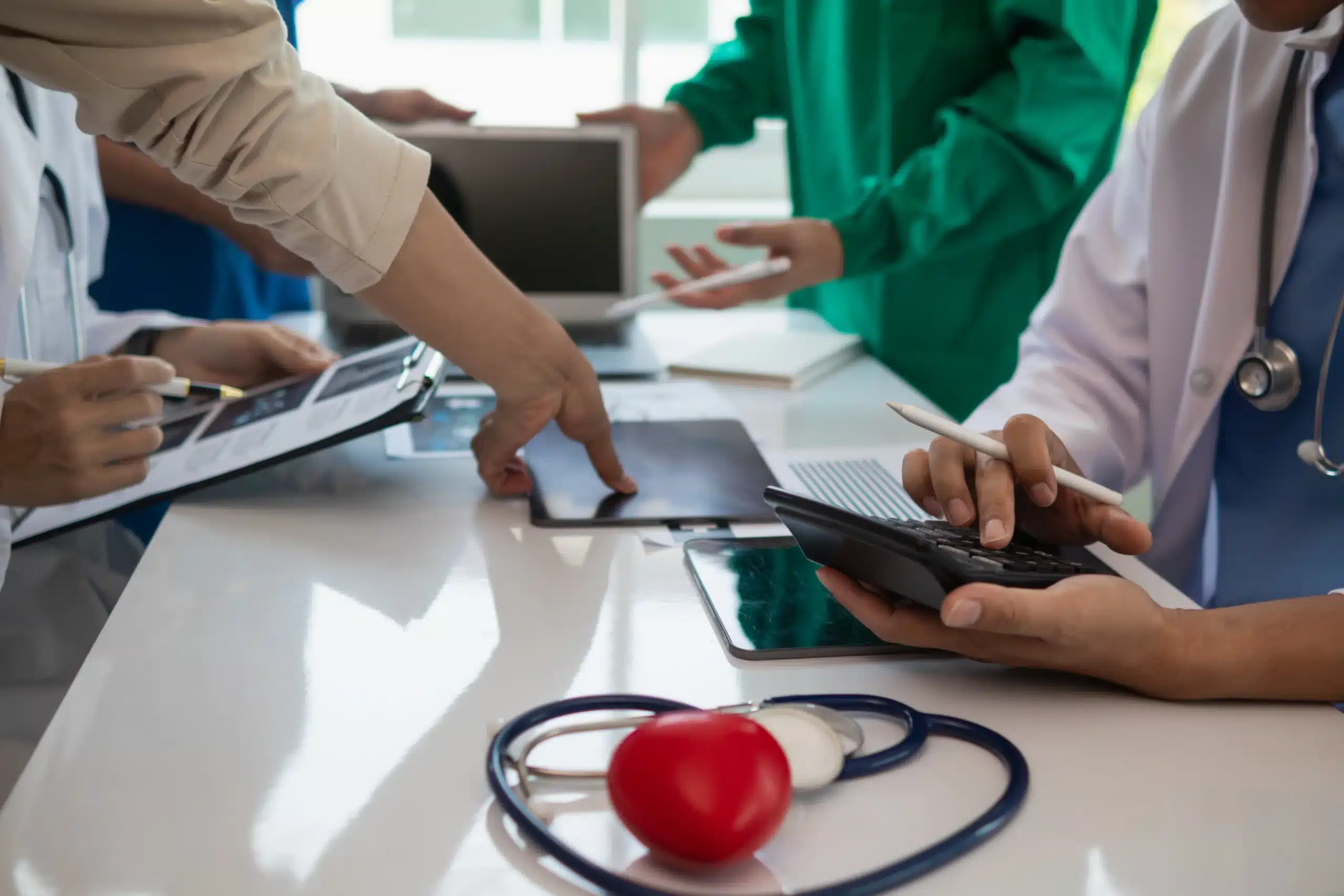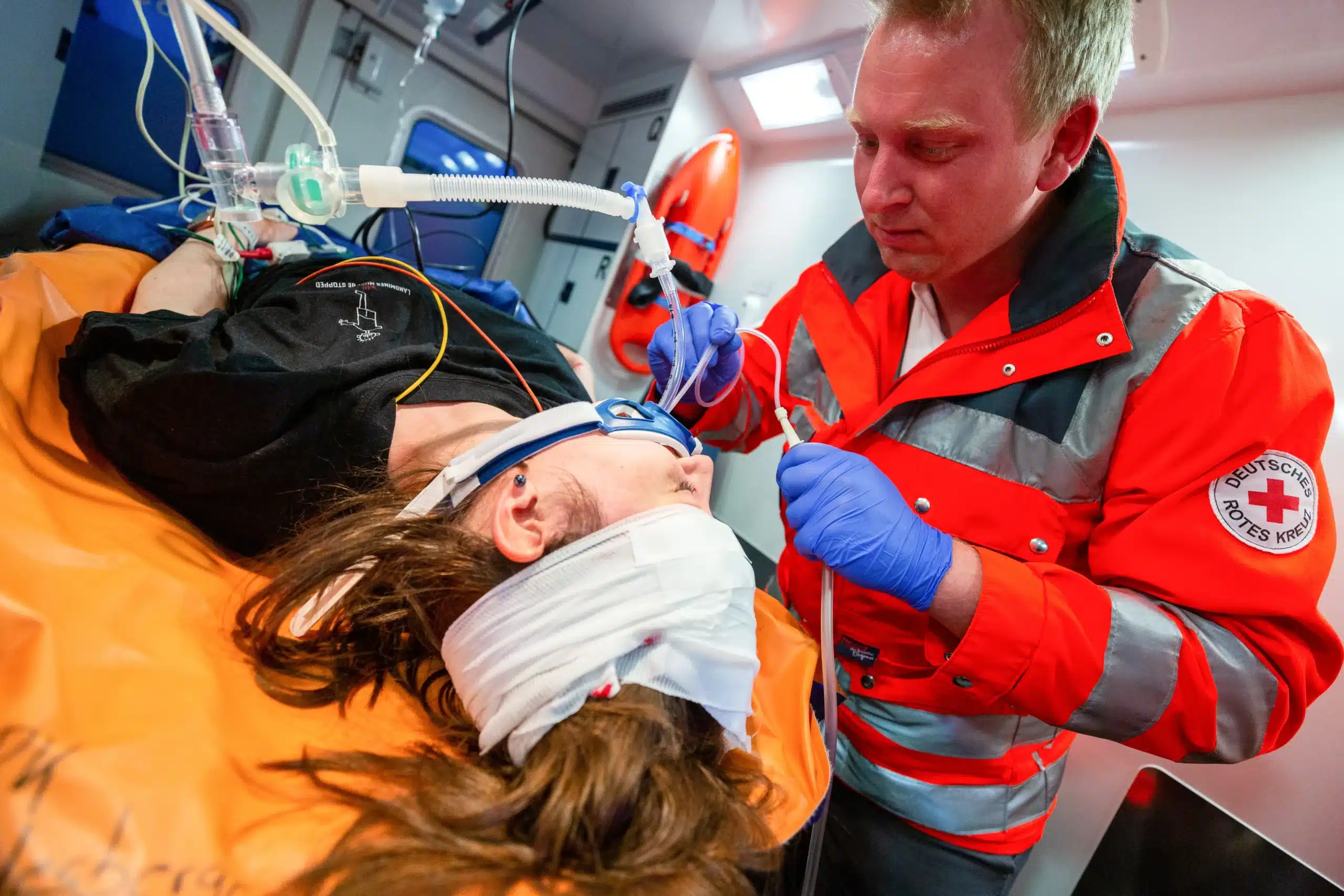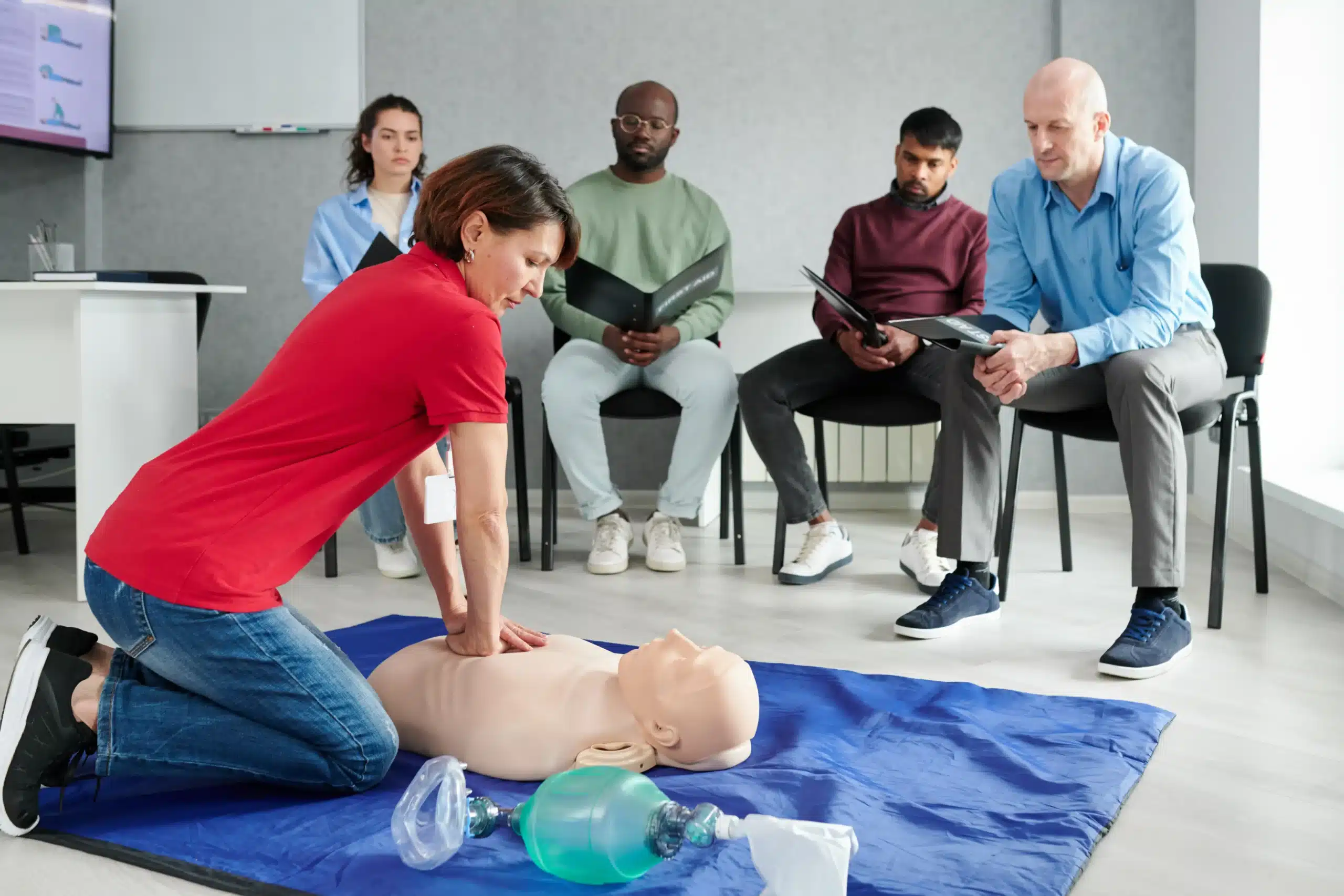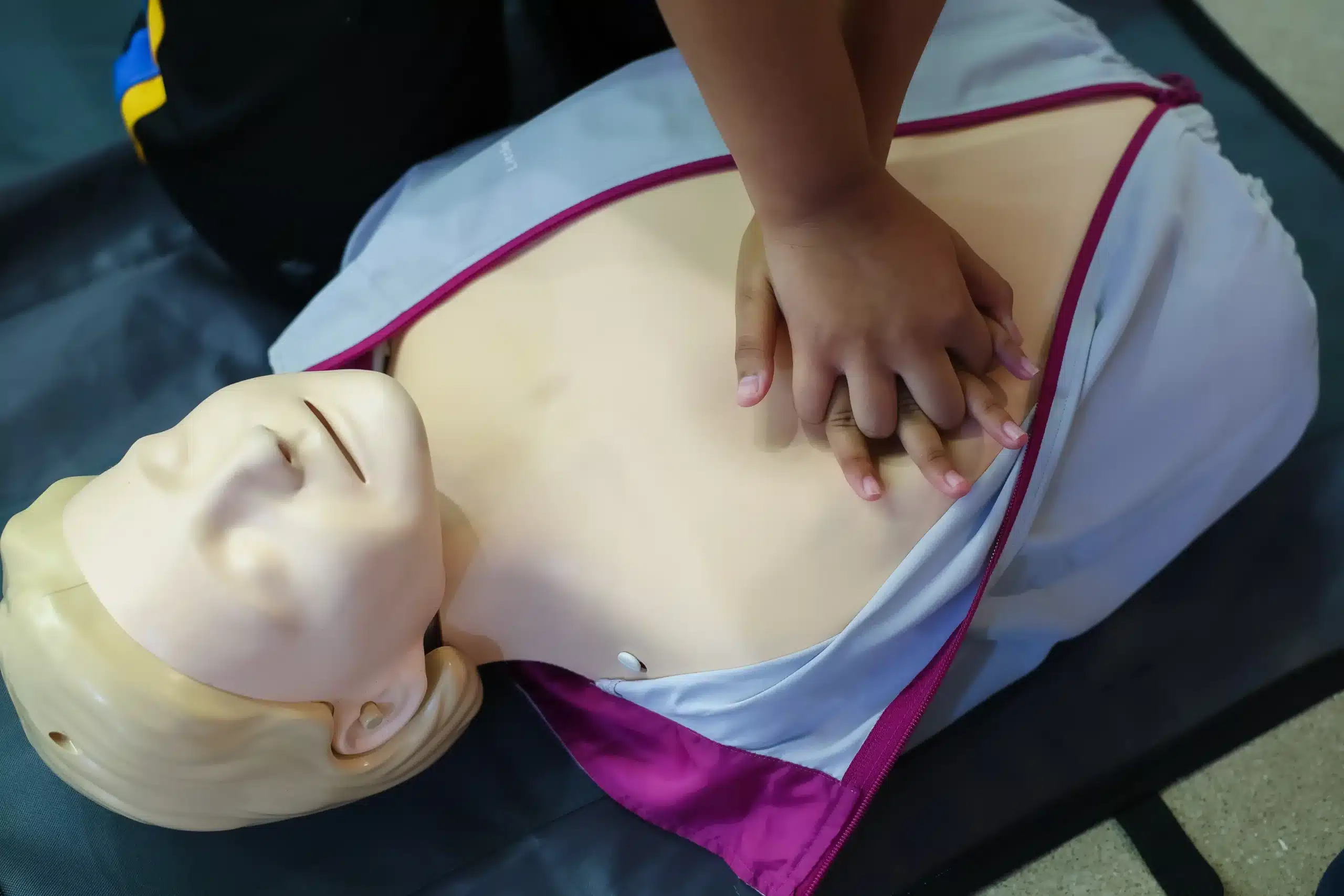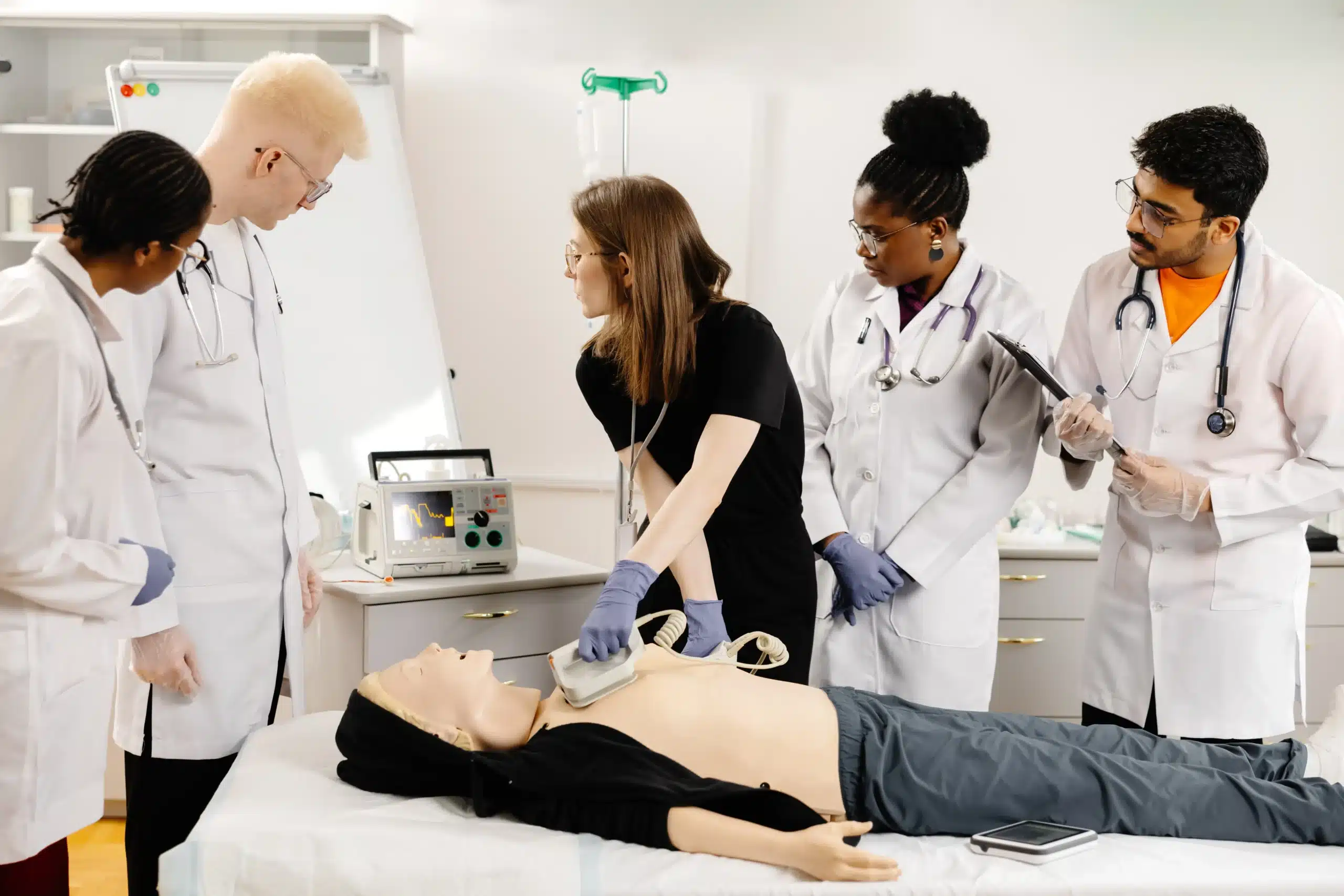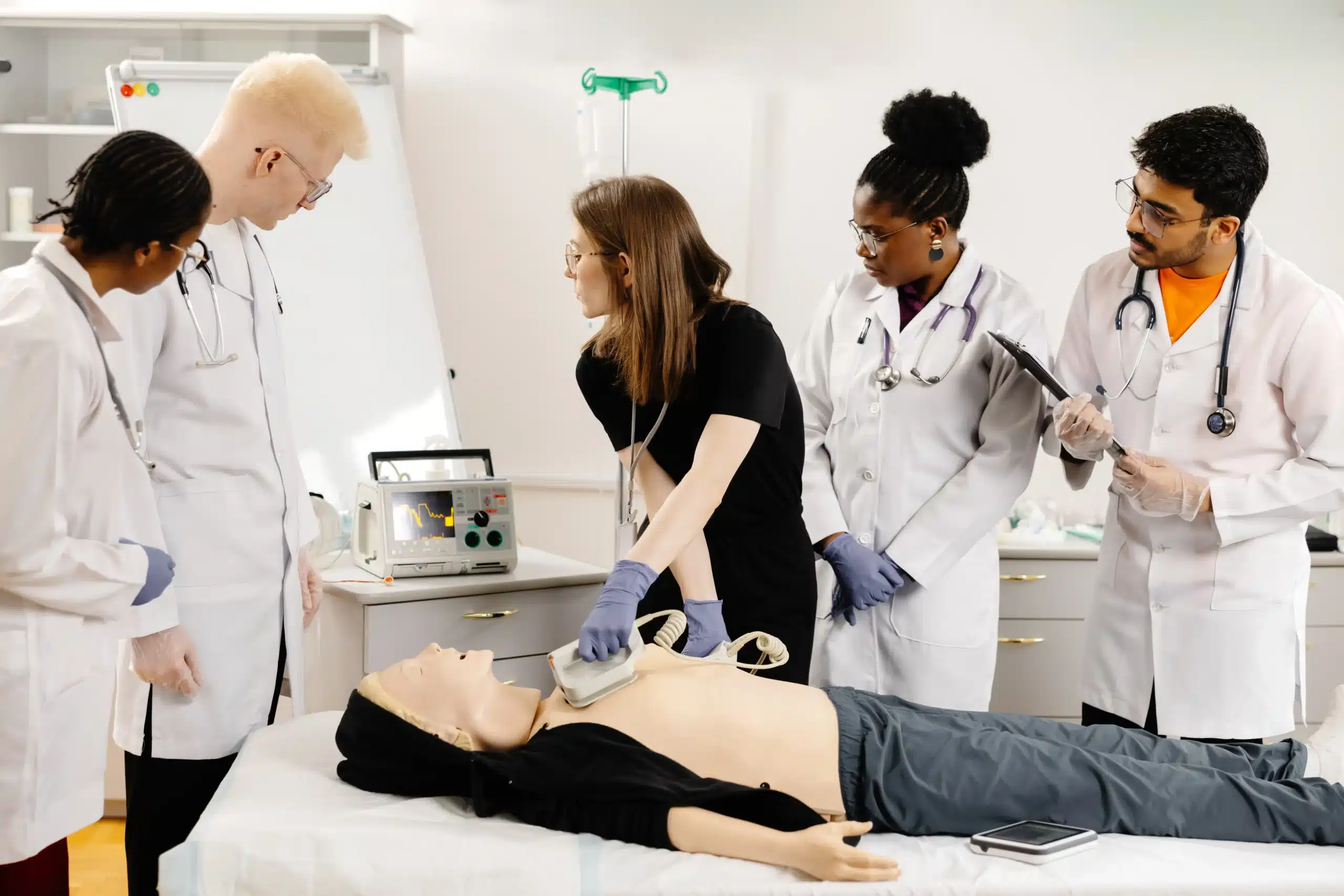Emergencies can happen anytime, anywhere. Would you know what to do? BLS training equips you with the skills to respond effectively in such critical situations. This guide explores the essential aspects of BLS training, including key skills, benefits for healthcare professionals and the general public, and how to find “bls training near me.” We’ll also cover various BLS training providers, compare different learning formats and costs, and guide you through understanding BLS certification requirements. Whether you’re a healthcare provider or simply want to be prepared, this guide will help you find the right BLS training program.
Key Takeaways
- BLS skills empower you in emergencies: Learning CPR, AED use, and basic airway management through BLS training gives you the confidence to act quickly and effectively in a crisis, regardless of your background.
- Choosing the right BLS course matters: Look for accredited programs with experienced instructors, relevant course content, a schedule that fits your needs, and positive student reviews to maximize your learning experience.
- Maintaining your BLS certification is crucial: Remember that certification is typically valid for two years. Explore refresher courses and challenge options to keep your skills sharp and your credentials up-to-date.
What is BLS Training and Why Do You Need It?
Basic Life Support (BLS) training gives you the skills to respond to life-threatening emergencies. It’s more than just CPR—BLS teaches you how to recognize emergencies and provide critical care until professional help arrives. These skills empower you to make a real difference. Whether you’re a healthcare professional or someone who wants to be prepared, BLS training is invaluable.
Key BLS Skills
BLS certification equips you with essential life-saving techniques. You’ll learn how to perform high-quality CPR, including chest compressions and rescue breaths, for adults, children, and infants. The training also covers using an automated external defibrillator (AED) and basic airway management techniques. These skills give you the confidence to act quickly and effectively in a crisis. For more information about BLS training, check out this helpful resource.
Benefits for Healthcare Professionals and Everyone Else
BLS certification is a must-have for healthcare providers, but it’s also incredibly beneficial for anyone who wants to be prepared for an emergency. For healthcare professionals, BLS is often a job requirement and the foundation for advanced life support training. It ensures you can provide competent patient care in critical situations. Learn about common misconceptions about BLS. Outside of the medical field, BLS training empowers you to help family, friends, coworkers, or even strangers. Knowing these skills can dramatically improve outcomes in emergencies. If you’re looking for BLS classes in Vacaville, this guide is a great place to start. Widespread BLS training increases overall community preparedness for emergencies. Read more about the impact of AHA BLS CPR classes.
Find Top BLS Training Near You
Finding the right BLS training program involves understanding your options. Several reputable organizations and institutions offer BLS certification courses, each with its own approach. Let’s explore some of the most common providers.
American Red Cross
The American Red Cross offers various BLS courses designed for healthcare providers and other professionals. They provide both in-person and blended learning options, combining online coursework with hands-on skills sessions. You can find a local Red Cross chapter offering BLS training near you. Check their website for course schedules and availability. They also offer online resources to help you prepare for your BLS certification.
American Heart Association
The American Heart Association (AHA) is another leading provider of BLS training. AHA BLS certification involves an online component and a required in-person skills assessment. This blended learning approach ensures you grasp the theoretical knowledge and develop the practical skills necessary for real-life emergencies. The AHA also provides a course catalog detailing the specifics of each course.
Local Hospitals and Medical Centers
Many hospitals and medical centers offer BLS training programs, often integrated into their employee training. These programs are typically designed for healthcare professionals working within the hospital system. Contact your local hospital’s education department or HR team to inquire about BLS training opportunities. You can often find information on these programs through the hospital’s website or by contacting them directly.
Community Colleges
Community colleges frequently offer affordable and accessible BLS certification courses. These courses cater to both healthcare professionals and the general public, making them a convenient option for many. Check your local community college’s course catalog or website for information on BLS training. Many community colleges also offer online learning options for added flexibility.
Vacaville CPR Classes
For those in the Vacaville, Dixon, and Fairfield areas, Vacaville CPR Classes provides a range of BLS, CPR, and first-aid training courses. They offer various options, including group discounts and flexible scheduling to accommodate different needs. Their focus on excellent customer service and daily certification courses makes them a convenient and reliable choice. You can contact them directly to learn more about their programs and schedule, or explore their RQI classes for specialized training. They also offer a low-price guarantee.
Compare BLS Training Formats and Costs
In-Person, Online, and Hybrid Options
When choosing BLS training, you’ll find a few different learning formats. Many organizations offer in-person training, which gives you hands-on practice and face-to-face interaction with instructors. If you need a more flexible schedule, online courses let you learn at your own pace. Some organizations, like the Red Cross, also offer a hybrid learning format, combining online coursework with in-person skills sessions.
Price Ranges and Discounts
BLS training costs vary depending on the format, provider, and your location. Basic CPR classes can start around $65, while CPR combined with First Aid training is usually a bit more. For advanced certifications like ACLS, expect to pay around $95 for initial certification and less for recertification. Many training centers offer discounts for groups or returning students, so it’s always worth asking. Vacaville CPR Classes offers group discounts. Check our low price guarantee.
Extra Fees and Materials
Look for extra fees when you register for your BLS course. Some providers charge extra for course materials or certification cards. Look for ways to save. The Red Cross sometimes offers free shipping on training materials with a coupon code. Also, some courses, like the BLS course from ACLS Medical Training, include continuing education credits. These can be helpful if you’re a healthcare professional and need these credits to maintain your license.
Understand BLS Certification
Before you sign up for a Basic Life Support (BLS) class, it’s helpful to understand what the certification entails. Knowing the course length, content, renewal process, and available options will help you choose the best class for your needs.
Course Length and Content
BLS courses typically run between 2.5 and 4.5 hours, covering essential lifesaving skills like CPR, using an AED, and providing first aid. The curriculum also includes scene safety, critical thinking in emergencies, teamwork, and relevant legal considerations. These courses prepare you to respond confidently and effectively in various crisis situations. Vacaville CPR Classes offers comprehensive BLS training that meets these standards.
Certification Renewal
Your BLS certification is generally valid for two years. To maintain your skills and credentials, you’ll need to take a renewal course. Many providers offer refresher courses, often available within 30 days of your certification’s expiration date. Keeping your certification current ensures you’re always ready to provide assistance when needed. Check with your certifying organization, such as the American Heart Association or the American Red Cross, for specific renewal guidelines.
Challenge Options for Experienced Professionals
If you’re a seasoned healthcare professional confident in your BLS skills, you might consider a “challenge” option. This typically involves independent study followed by a written exam and skills assessment. This accelerated path can be a convenient way to renew or obtain BLS certification without attending a full course. Some programs even offer 100% online challenge options, allowing you to study at your own pace. This flexibility is especially helpful for busy professionals. Contact Vacaville CPR Classes to learn more about challenge options available in your area.
Choose the Right BLS Training
So you’ve decided to get BLS certified—great! Now, let’s make sure you find the right course for your needs. It’s important to consider key factors like accreditation, instructor experience, course content, and ongoing support. These elements can significantly impact the quality of your training and your confidence in using those skills.
Accreditation and Instructor Qualifications
First things first: confirm the program’s accreditation. Vacaville CPR Classes offers American Heart Association (AHA) BLS courses, a widely recognized and respected program. Look for courses taught by certified instructors with real-world experience. Experienced instructors can offer valuable insights and practical tips beyond the textbook. For healthcare providers, Fairfield CPR Classes focuses on high-quality BLS training tailored to your needs.
Course Content and Schedule
A good BLS course should cover essential life-saving techniques like CPR, AED use, and airway management. This overview from Vacaville CPR Classes details what you can expect to learn. Think about your schedule, too. BLS courses in Vacaville typically run between four and six hours, so find a format and schedule that works for you.
Student Reviews
Before committing to a course, see what other students have to say. Real feedback can give you a sense of the teaching style, course effectiveness, and overall experience. CPR Time features positive testimonials from students who enjoyed their training. Look for comments about the instructors, the material, and the learning environment.
Accepted Certifications in Your Area
Make sure the certification you earn will be accepted in your area and for your professional requirements. CPR Class Today offers AHA-certified training, meeting national and California state requirements. Check that the course aligns with any workplace or licensing requirements you might have. Fairfield CPR classes emphasizes the importance of up-to-date certifications.
Post-Training Support
Finally, consider what happens after you complete the course. Will you have access to refresher materials or continuing education? Fairfield CPR Classes has a variety of courses for ongoing training. Vacaville CPR Classes offers an RQI program, a streamlined path to maintaining your BLS, ACLS, and PALS certifications. Ongoing support can help you stay sharp and confident in your skills.
Related Articles
- BLS Certification in Dixon: Your Complete Guide – Vacaville CPR Classes
- BLS Courses in Vacaville: Your Guide – Vacaville CPR Classes
- Advanced Cardiac Life Support (ACLS) Training in Dixon – Vacaville CPR Classes
- BLS Certification in Vacaville for Healthcare Providers – Vacaville CPR Classes
- BLS Renewal in Fairfield: Your Simple Guide – Vacaville CPR Classes
Frequently Asked Questions
Is BLS certification the same as CPR certification? BLS certification is more comprehensive than basic CPR. While CPR is a core component of BLS, BLS training also includes other crucial skills like using an AED, relieving choking, and understanding basic airway management. It also emphasizes critical thinking and teamwork in emergency situations. Think of BLS as a broader skill set that equips you to handle a wider range of medical emergencies.
How long does BLS certification last, and how do I renew it? BLS certification is typically valid for two years. To renew, you’ll need to take a recertification course before your current certification expires. These renewal courses are shorter than the initial certification course, focusing on refreshing your core skills and knowledge. Check with your certifying organization or training center for specific renewal requirements and available courses.
What’s the difference between in-person and online BLS training? Both in-person and online BLS training cover the same core material, but the learning experience differs. In-person classes offer hands-on practice with instructors and immediate feedback. Online courses provide more flexibility, allowing you to learn at your own pace. Some programs offer a blended learning approach, combining online coursework with in-person skills sessions. Consider your learning style and schedule when choosing the best format for you.
How much does BLS training cost, and are there any discounts available? BLS training costs vary based on the provider, location, and course format. Expect to pay anywhere from $75 to $150 for initial certification. Many providers offer discounts for groups, students, or returning customers. It’s always a good idea to inquire about potential discounts when contacting a training center. Also, compare prices from different providers in your area to find the best value.
How do I choose the right BLS training provider? Choosing the right BLS provider involves a few key considerations. Look for providers accredited by reputable organizations like the American Heart Association or the American Red Cross. Check instructor qualifications and look for experienced professionals with a strong teaching background. Read student reviews to get a sense of the training quality and learning environment. Finally, ensure the certification you earn will be accepted in your area and meet any professional requirements you may have.
